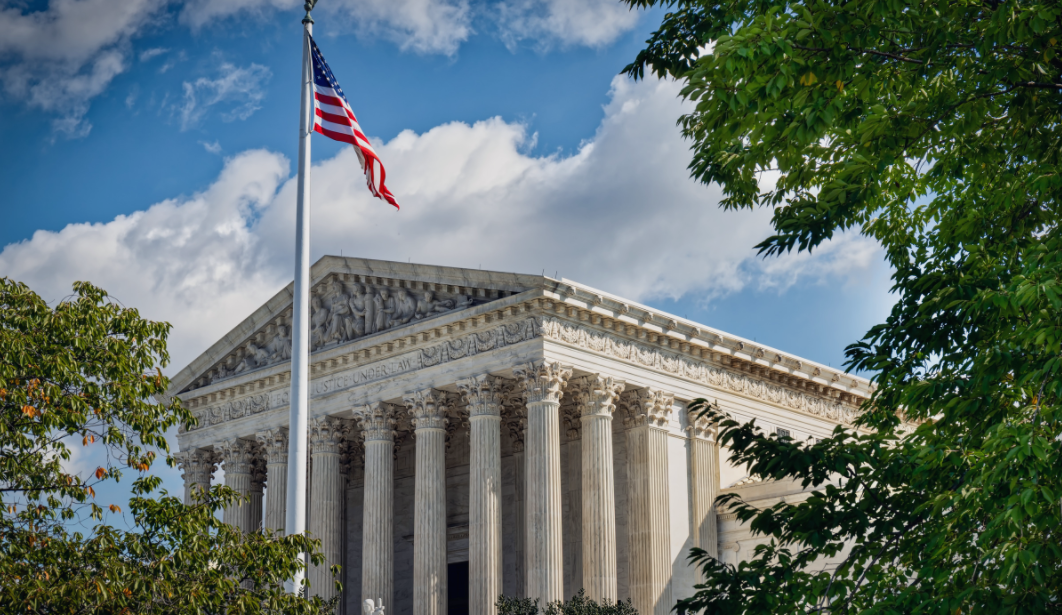On December 7, 2020, the New Jersey Supreme Court ruled in favor of Johnson & Johnson on its claim for a refund of insurance premium taxes. The Supreme Court adopted the decision of the Superior Court of New Jersey Appellate Division, which had overruled a decision of the New Jersey Tax Court denying the refund.
Johnson & Johnson Formed a Captive
Johnson & Johnson (J&J) is a well-known, international pharmaceutical company headquartered in New Jersey. In 1970, J&J formed a captive insurance company called Middlesex Assurance Company Limited (Middlesex) in Bermuda to, as the Appellate Court found, “secure broader coverage and lower the costs and fees associated with its substantial insurance needs”. The Appellate Court further found that Middlesex was a “pure or single-parent captive”. By the time of the lawsuit, Middlesex had been re-domiciled to Vermont. This meant that Middlesex was authorized to do business only in Vermont and was not authorized to do business in New Jersey. In addition, as a captive insurance company, Middlesex issued insurance coverage only to J&J.
The Different Types of Insurance Markets
There are generally two types of insurance markets. The first is the “admitted market”, and the second is the “nonadmitted or unauthorized market”. An admitted insurer is an insurance company licensed and authorized to do business in a particular state. This means that it can market its products directly to a resident of the state and can deliver its policies in the state.
An unauthorized insurer is an insurance company that is not licensed in a particular state and, as a result, cannot engage in marketing activities in that state. While an unauthorized insurer may not do business in a particular state, that does not mean that a resident of that state may not buy insurance coverage from the unauthorized insurer.
The United States Supreme Court long ago held that a person has the constitutional right to buy insurance from any company of their choosing. Therefore, while an unauthorized insurer cannot do business in a particular state, residents of that state may still procure insurance from that unauthorized insurer.
In addition, there are two types of unauthorized insurance markets. The first is the “surplus-lines insurance market”, and the second is the “self-procured insurance market”. The “surplus-lines market” refers to the situation where no insurance company licensed in the state is willing to cover a particular risk.
In that case, a “surplus-lines” policy may be procured through a “surplus-lines broker”, who is licensed and regulated by the state. The “self-procured market” refers to the situation where an insured procures insurance from an unauthorized insurer directly without the help of a surplus-lines broker.
In the J&J case, the Appellate Court held that the surplus-lines market and the self-procured market are separate and distinct. It also found that J&J procured insurance from Middlesex without the help of a surplus-lines broker. Therefore, the insurance coverage that J&J obtained from Middlesex was self-procured insurance.
Insurance Premium Taxes
Most states in the country impose a tax on insurance premiums. The rates vary by state, but there are very few states that do not impose such a tax. When the premiums are paid to an admitted carrier, the state looks to the insurance company for the payment of the tax.
When insurance is purchased through a surplus-lines broker, the state generally looks to the broker for the payment of the tax. When the insurance is self-procured, the state generally looks to the insured for the payment of the tax.
Nonadmitted and Reinsurance Reform Act
The Nonadmitted and Reinsurance Reform Act (NRRA) is a federal statute passed as part of the Dodd-Frank legislation. The NRRA, which became effective in 2011, provides for the reporting, payment and allocation of insurance premium taxes in connection with the purchase of unauthorized insurance.
Prior to the NRRA, the payment of insurance premium taxes was a complicated and unruly system. Each state had its own regime and generally taxed insurance premiums covering risks located within the state. This meant that an insured with locations in multiple states could have reporting and payment obligations in all of those states when it bought insurance in the unauthorized market. This was a reporting and accounting nightmare.
The NRRA adopted what is known as the “home state rule”. Under the “home state rule”, only the “home state” of an insured could impose an insurance premium tax on insurance premiums paid to an unauthorized insurer. The NRRA further defined the term “home state” as the place where the insured has its principal place of business, or the state where the greatest percentage of premium is paid, if 100% of the risk is in a state other than where the insured has its principal place of business. In addition, an insured’s home state could impose a tax on 100% of the premiums paid by the insured, even if the insured was insuring risks in multiple states.
The NRRA Is Not Mandatory
This brings us back to the J&J case. As the Appellate Court noted, the NRRA does not require a state to impose a premium tax. A premium tax can only be imposed by a state’s legislature through the enactment of a statute. More importantly, the NRRA does not require that a state impose a tax on all premiums paid by an insured, even on those premiums for risks located out of state. It simply authorizes a state to impose its premium tax on all premiums paid by an in-state insured.
After the enactment of the NRRA, New Jersey amended its insurance premium tax statute to conform to the NRRA. Prior to the amendment, the New Jersey premium tax statute provided that the insurance premium tax was assessed only on risks located in New Jersey. The amendment purported to change the insurance premium tax regime by assessing the tax on all premiums paid by a resident of New Jersey, even on premiums paid for risks located in other states.
However, the New Jersey legislature, to put it mildly, screwed up. As stated above, surplus-lines insurance and self-procured insurance are separate and distinct. In fact, in New Jersey, they are governed by separate sections of the New Jersey statutes. The problem is that, when the legislature attempted to amend the premium tax statute, it only added the necessary language to the surplus-lines section. It did not amend the section that governs the self-procured insurance premium tax.
After the amendment, J&J, as a precautionary measure, paid insurance premium tax on all premiums that it paid to Middlesex, even for risks located outside of New Jersey. J&J then sued for a refund of taxes that it claimed it had overpaid.
The Appellate Court, in an opinion adopted by the New Jersey Supreme Court, said that it was required to apply the precise language of the statute. It reiterated that self-procured insurance is not surplus-lines insurance. And, when the legislature amended the stature by adding language to the surplus-lines section, but not the self-procured section, it was probably an oversight.
However, as a matter of statutory construction, a court cannot give effect to the intent of the legislature, when the language of a statute is clear and unambiguous. Here, the self-procured section of the statute was left unchanged by the amendment, and it was clear and unambiguous. It still provided that the insurance premium tax could only be assessed against risks located in New Jersey.
As a result, the Court had no choice but to rule that J&J had overpaid its insurance premium tax and was entitled to a refund.
The moral of the story is read a statute carefully. Whether you are a legislator writing the law or a person subject to the law, make sure you understand what it says. And, if you do not understand what a law provides, talk to somebody who does.



